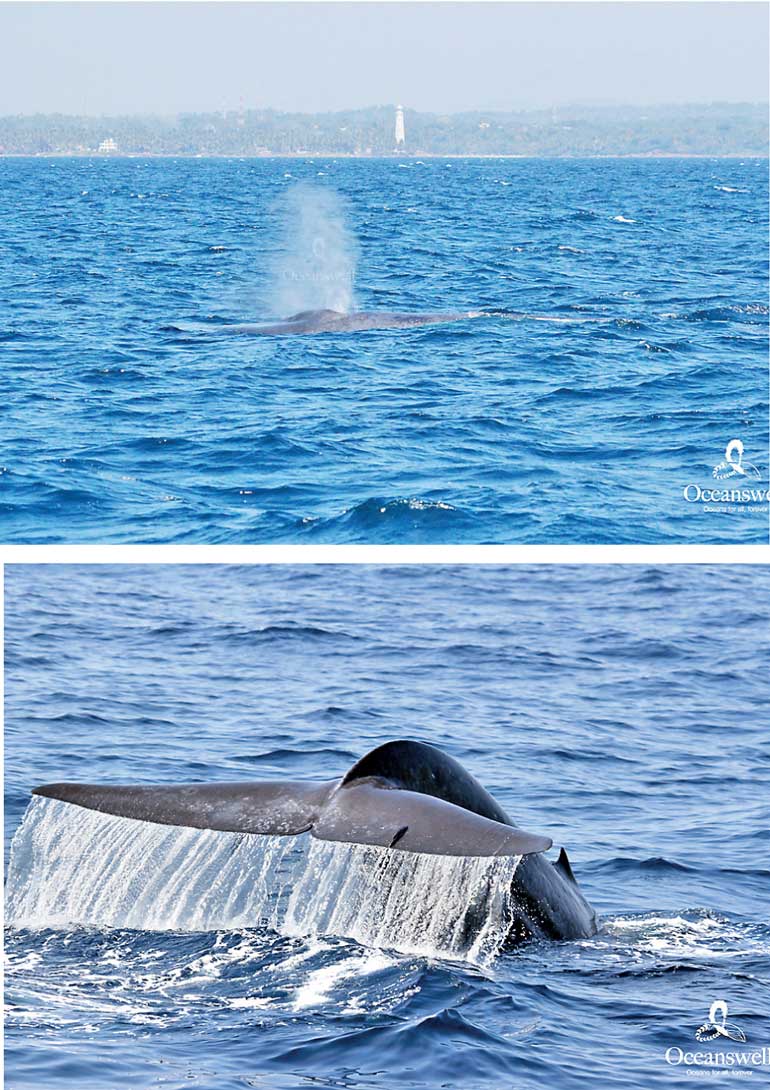Monday Feb 23, 2026
Monday Feb 23, 2026
Wednesday, 8 March 2017 00:00 - - {{hitsCtrl.values.hits}}
 The Wildlife and Nature Protection Society monthly lecture for March will be on ‘Blue whales in a changing world’ by Dr. Asha De Vos on 16 March at 6 p.m. at the Jasmine Hall (Committee Room A), BMICH, Bauddhaloka Mawatha, Colombo 7.
The Wildlife and Nature Protection Society monthly lecture for March will be on ‘Blue whales in a changing world’ by Dr. Asha De Vos on 16 March at 6 p.m. at the Jasmine Hall (Committee Room A), BMICH, Bauddhaloka Mawatha, Colombo 7.
Dr. Asha de Vos is a Sri Lankan marine biologist, ocean educator and pioneer of blue whale research within the Northern Indian Ocean. She calls the population of whales in the water around Sri Lanka ‘the Unorthodox Whales’ because through many years of research, she has discovered that they are simply – different. She has degrees from the University of St. Andrews, University of Oxford and the University of Western Australia but escaped academia to establish her own Sri Lankan grown non-profit, Oceanswell. She also runs ‘The Sri Lankan Blue Whale Project’ which is the first long term study on blue whales in her region, and her work has led to many key research publications, that are used to inform policy at the local and global level.
Additionally, Asha’s work has been showcased internationally by Channel 7 Australia, the BBC, the New York Times, CNN, WIRED UK, the New Scientist, TED, Grist, GOOD and National Geographic. Asha is the first and only Sri Lankan to have a PhD in Marine Mammal research, the first Pew Fellow in Marine Conservation from Sri Lanka and also the first National Geographic Explorer from her small island nation. Asha is also a TED Senior fellow, an Ocean Conservation Fellow at the New England Aquarium, a Duke Global Fellow in Marine Conservation, a World Economic Forum Young Global Leader and currently serves as a Senior Advisor to Oceana.
Asha’s life work is to change the current marine conservation model, protect this unique population of blue whales and inspire the next generation of ocean heroes from the developing world.
Blue whales in Sri Lankan waters are unique, non-migratory, and little known yet face a range of threats. Amongst the trickiest is the issue of climate change that affects the entire marine ecosystem. Over the last 60 years, climate change has resulted in a 20% reduction in marine productivity within the Indian Ocean. Given that 2016 became the third warmest year on record and the hottest in recorded history an understanding of how the climate of the Indian Ocean is changing, how it may influence the whale populations and the role they play in preventing climate change is timely.
The Wildlife and Nature Protection Society Monthly Lecture is open to all members and non-members, admission free.